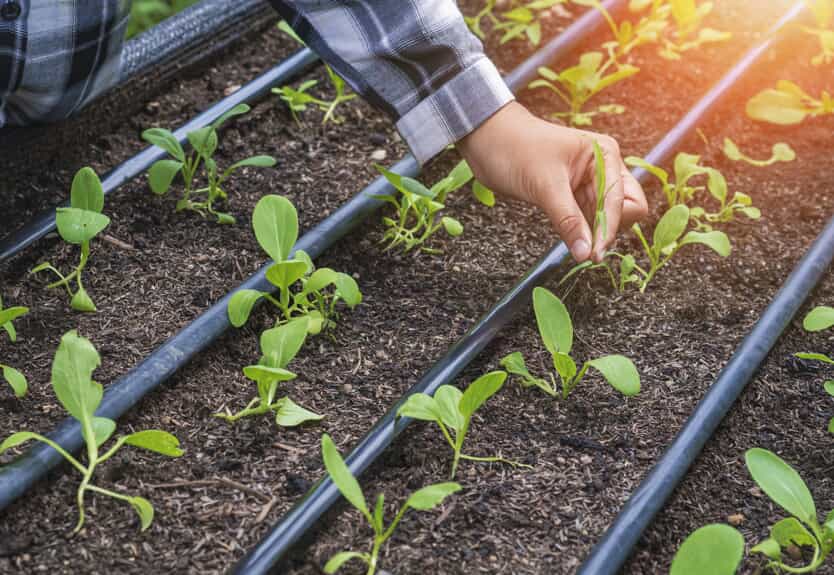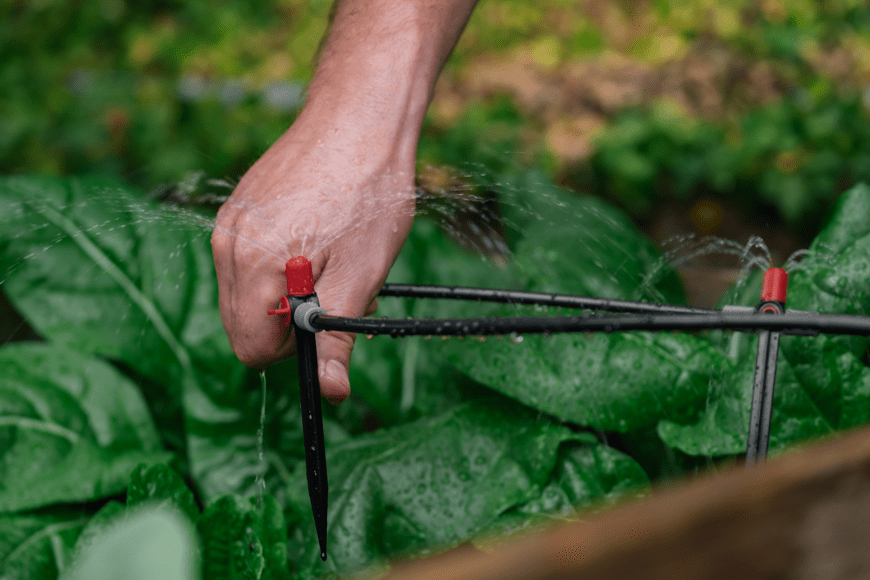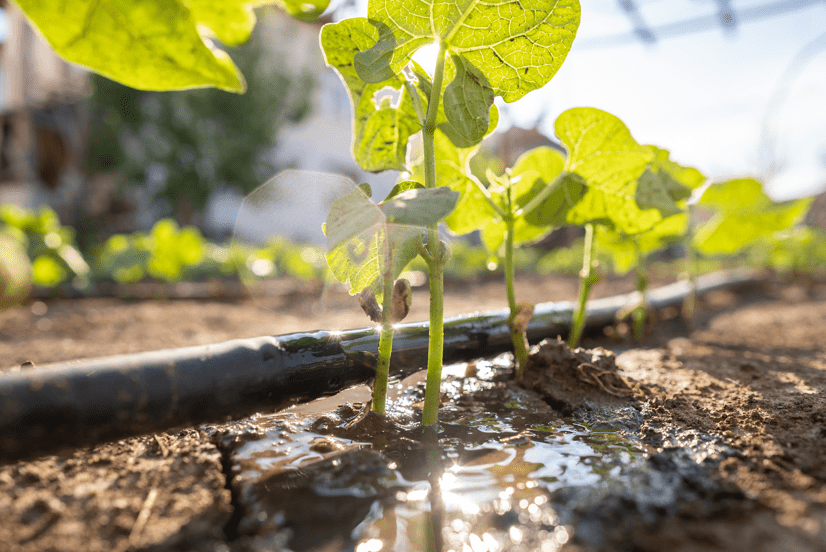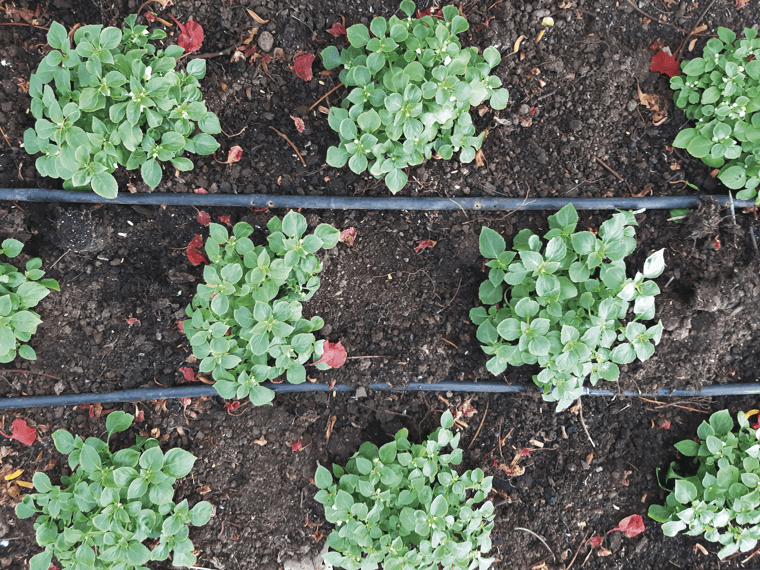Introduction:
Gardening is a gratifying and satisfying hobby that allows us to connect with nature and create healthy eating habits. However, proper irrigation techniques are essential to ensure our plants' health and vitality. In this blog, we will explore the importance of irrigation in gardening and provide valuable tips to help you optimize your watering practices.

1. Understanding the Importance of Irrigation:
Water is a vital resource for plants, and providing them with the right amount at the right time is crucial for their growth and development. Irrigation helps maintain soil moisture levels, ensuring plants receive the necessary hydration to thrive. It aids nutrient absorption, prevents diseases, and promotes healthy root systems.

2. 3 Types of Irrigation Systems:
a. Drip Irrigation (Best Method): This method involves delivering water directly to the plant's root zone, minimizing water wastage and reducing the risk of fungal diseases. Drip irrigation systems are highly efficient and easily customized to suit different garden layouts.
b. Sprinkler Systems (Acceptable Method: Sprinklers are famous for more extensive gardens or lawns. They distribute water over a wider area, mimicking rainfall. However, ensuring proper coverage and avoiding overwatering certain areas is vital.
c. Soaker Hoses (Worst Method): These hoses release water slowly and directly into the soil, allowing deep root penetration. Soaker hoses are ideal for garden beds, vegetable patches, and areas with dense plantings.

3. Watering Techniques:
a. Timing: Early morning or late afternoon watering is ideal, as it allows plants to absorb moisture before the day's heat evaporates. Avoid watering during the hottest part of the day to prevent scorching foliage.
b. Frequency: Watering frequency depends on various factors such as plant type, soil type, and weather conditions. It's essential to balance keeping the soil consistently moist and avoiding waterlogging.
c. Mulching: Applying a layer of organic mulch around plants helps retain moisture, suppresses weed growth, and regulates soil temperature. Mulching also reduces evaporation, allowing water to penetrate the soil more effectively.

4. Smart Irrigation Practices:
a. Rainwater Harvesting: Collecting rainwater in barrels or tanks is an eco-friendly way to supplement your irrigation needs. Rainwater is chemical-free and has a balanced pH, making it ideal for plants.
b. Soil Moisture Sensors: Installing moisture sensors in your garden can help you monitor soil moisture levels accurately. These sensors provide real-time data, allowing you to adjust your watering schedule accordingly.
c. Grouping Plants: Grouping veggie plants with similar water requirements can help optimize irrigation. This practice ensures that plants with higher water needs receive adequate hydration without overwatering those that require less. Additionally, companion planting increases plants to create a united growth by allowing nature to share her strengths.
Conclusion:
Integrating proper irrigation techniques into your veggie gardening routine is essential for maintaining healthy and thriving plants. By understanding the importance of irrigation, choosing the right system, and implementing smart watering practices, you can create a lush and vibrant garden that will envy your neighborhood. So, let's embrace the art of irrigation and elevate our gardening experience to new heights!
To learn more about our various irrigation systems and services, contact us online or call (520) 779-3544 today!